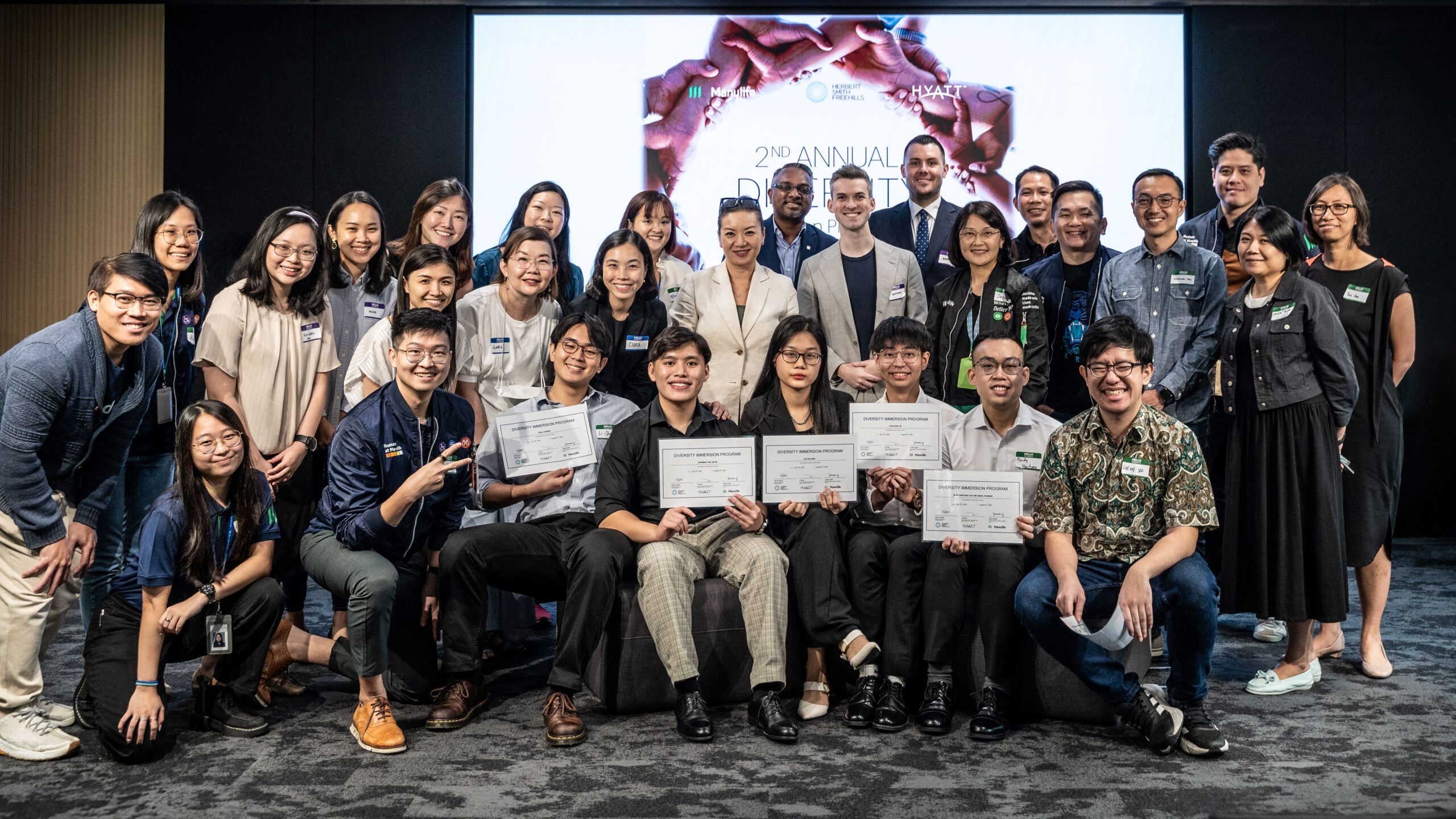How Thales is redefining success in the business world
- Josephine Tan
- Topics: DE&I, Employee Experience, ESG, Features, Home Page - Features

At the forefront of global technology, Thales has been redefining what it means to be a leader in today’s business world. Beyond delivering innovative solutions, Thales is committed to fostering a diverse and inclusive (D&I) workplace, championing sustainability, and actively pursuing social responsibility.
Speaking with HRM Asia, Frederic Gaubert, Regional Operations Director for Thales in Asia, shared how these values are integrated into their operations and the lessons learned. He said, “Over the years, Thales’ approach to D&I has evolved in line with employees’ preferences and priorities when considering their future employment.”
“Recently, we’ve seen a shift in why employees join and stay with an organisation. Many highlight the importance of organisational culture, specifically, wanting to join an organisation emphasising a strong, flexible and inclusive culture.”
To foster this inclusive environment, Thales has implemented several key initiatives:
- D&I Workshops and Training: These sessions aim to raise awareness about unconscious bias, encourage inclusive behaviours, and promote a culture of respect. “Through these workshops, we hope that our colleagues have a better awareness of the impact of diversity, equity, and inclusion at the workplace,” he explained.
- The WeInThales (WiTH) Committee: This initiative organises events to celebrate the organisation’s diverse workforce. From International Women’s Day to International Women in Engineering Day, these events recognise and honour various aspects of diversity.
- Le Club: Thales employees can engage in various recreational activities organised by Le Club, a volunteer-driven group of Thales team members from all functions. Le Club hosts multiple events yearly, from festival celebrations to wellness and wellbeing programmes.
Gaubert continued, “Overall, to ensure that our initiatives are well received by our employees and are effective, we rely on various metrics to measure success. This includes diversity metrics in recruitment and overall workforce composition, an annual employee engagement survey, and open-channel feedback allowing our employees to share their feedback on the effectiveness of the programmes.”
Environmental protection is another cornerstone of Thales’ corporate strategy. Gaubert elaborated on how HR practices are aligned with sustainability goals, stating, “Thales recognises that environmental protection and sustainability are not just corporate responsibilities but also key drivers for overall growth and competitiveness, especially in today’s rapidly evolving Asia landscape. The region’s increasing focus on sustainable development has led us to integrate these principles as a core inclusion in our business strategies and HR practices.”
One notable initiative is the Thales Climate Passport, an educational programme to deepen employees’ understanding of environmental issues. “Going through this detailed training would hopefully inspire individuals and collection action within the organisation, aligning our workforce with our sustainability goals,” he said. Additionally, workshops like Climate Fresk educate employees about climate change and empower them to contribute to solutions.
Thales has also established an eco-design community highlighting the importance of sustainability in business operations and product development, focusing on the initiatives led by the engineering teams. Gaubert elaborated, “Thales has close to 500 engineers in Singapore working on deep-tech solutions, and embedding sustainability at the design phase becomes a cornerstone on how we view our products being put into use.”

“By implementing these sustainability initiatives and practices, we are not just preparing our workforce for the future ‘green’ landscape but positioning Thales as taking the initiative to be a leader in sustainable innovation, ensuring that we remain a competitive and attractive organisation to prospective talent.” – Frederic Gaubert, Regional Operations Director for Thales in Asia
“By implementing these sustainability initiatives and practices, we are not just preparing our workforce for the future ‘green’ landscape but positioning Thales as taking the initiative to be a leader in sustainable innovation, ensuring that we remain a competitive and attractive organisation to prospective talent.”
Thales’ blueprint for sustainable success
Thales’ dedication to diversity, sustainability, and social responsibility has earned the Company of Good – 2 Hearts recognition from the National Volunteer and Philanthropy Centre (NVPC). This accolade, part of the enhanced Company of Good Recognition System, acknowledges organisations that excel in their contributions to society, governance, and the environment.
Gaubert commented, “Our journey towards becoming a Company of Good has been a great learning experience that not only shapes our approach but also provides valuable insights into how we can continue to evolve and improve.”
READ MORE: Building a better future: Business as a force for good
Reflecting on this journey, he highlighted several vital lessons that have emerged. Firstly, he emphasised the importance of measurable impact. Thales has enhanced its sustainability efforts and impact by identifying and tracking key performance indicators. “In the diverse and rapidly changing market, having concrete metrics not only keeps us accountable but also allows us to adapt our strategy effectively and demonstrate tangible progress to our stakeholders,” he added.
Another significant lesson is the value of stakeholder collaboration. He explained that aligning and collating data collaboratively, rather than working in silos, has allowed Thales to present itself as a unified entity. This approach extends beyond mere corporate social responsibility (CSR) efforts to unify the entire organisation under a common purpose.
Finally, Gaubert underscored the importance of focusing on core strengths. The organisation aims to advance towards a safer, greener, and more inclusive future by concentrating on areas where Thales can make the most meaningful contributions. He concluded that this focus helps Thales leverage its capabilities effectively and create a significant impact both within the organisation and in the broader world.
For more news and analysis on the latest HR and workforce trends in Asia, subscribe to HRM Asia and be part of the region’s largest HR community!






